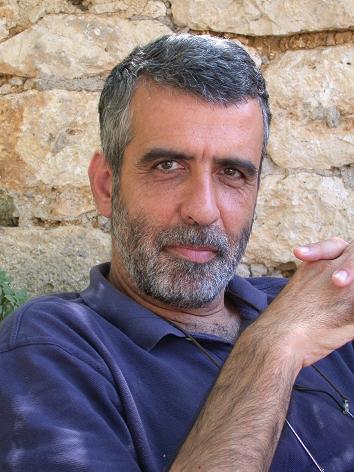And also: a utopian speech by President Katsav

In the photo: Prof. Israel Finkelstein, one of the winners of the Dan David Prize for 2005
In the Smolarch Auditorium at Tel Aviv University, the Dan David Awards were handed out this evening. Among the speakers were State President Moshe Katsav, Tel Aviv University President Prof. Itamar Rabinovitch, University Rector Shimon Yankelevich, the initiator of the award David David, and representatives of the winners.
As mentioned, the winners selected by the steering committee, headed by the president of Tel Aviv University, Professor Itamar Rabinovitch, are Professor Israel Finkelstein from Tel Aviv University and Professor Graham Barker from Cambridge University - both for their work in the field of archeology as representations of the dimension of the past, the director and multidisciplinary artist Peter Brook from The International Theater in Paris representing the time dimension of the present, while the time dimension of the future is represented by winners from the field of materials science: to Professor Robert Langer from the Massachusetts Institute of Technology, Professor George Whitesides from Harvard University and Professor Sen. Rao from the Jawaharlal Nehru Center in India. The three, all well-known scientists specializing in materials science, will share a $XNUMX million grant. Langer won the award for his pioneering work in the development of tissue engineering and the creation of new biological materials, Whitesides for bridging two different disciplines - the creation of materials and surface area science, and Rao for his achievements in solid state chemistry.
The president of Tel Aviv University said that this is the fourth time the prize has been awarded and in these years it has brought honor to Dan David and Tel Aviv University.
Dan David introduced the 13 winners of the essay competition for teenagers, who were asked to say which areas have the most influence on knowing the past, improving the present and dreaming of the future, and promised a particularly impressive ceremony next year - the fifth year of awarding the prize.
The president of the country gave a completely utopian speech full of appreciation for scientific knowledge and its importance for the future of humanity and the solution of the problems it faces. "Scientific research is an asset to humanity, the economy and society. And it will help in finding a solution to poverty, ecological disasters and incurable diseases. Knowledge is in the universe, science only needs to discover it. The strength of a society is measured not only in natural treasures but in its scientific ability."
The one who dropped Katsav from the top ranks was Tel Aviv University Rector Shimon Yankelevich who commented on the words of President Katsav and said that they should reach the ears of the decision makers, especially when they were said against the background of the cuts in higher education and the damage to the research universities. He also said that the prize is a celebration of what is possible for man and his uniqueness - to know everything, not for an immediate utilitarian purpose but for the sake of knowledge, and scientists are also allowed to debate issues of emotion, ethics and morality. We continue to eat from the tree of knowledge and get closer to the rank previously assigned to God.
Afterwards, the prizes were awarded to the winners and one representative from each category gave a congratulatory speech. Graham Barker said that archeology is a science that reveals not only what kings and nobles thought, said or did, but also the common people throughout the ages. It is not a theoretical science but a science that concerns the general public and is done for them. Unfortunately, the politicians and the press create an abstract past, while every person from the public sees the past only what they want to see in it - whether according to their upbringing or for other reasons. The role of archeology is to uncover the information about the past and take it out of the hands of its captors.
Peter Brock said that the award is a very important recognition of the institution that he has been running for 40 years, where people from all cultures, all races gather and do joint cultural activities. He also called for increased cultural cooperation between Israelis and Palestinians.
In the spirit of the award's themes - the different times, Prof. George Whitesides spoke about the materials and said that the past belonged to mechanics, the present to electronics and the future - to biology. According to him, so far materials science has dealt with inanimate materials, but he is beginning to be interested in living ones as well. As an applied science - materials science exists only thanks to the use that materials have and the future, demonstrated by nanotechnology, foresees the possibility of designing materials according to their function, instead of using existing materials for the necessary functions.
(See also a special interview with Prof. Rao on the Hadaan website)
